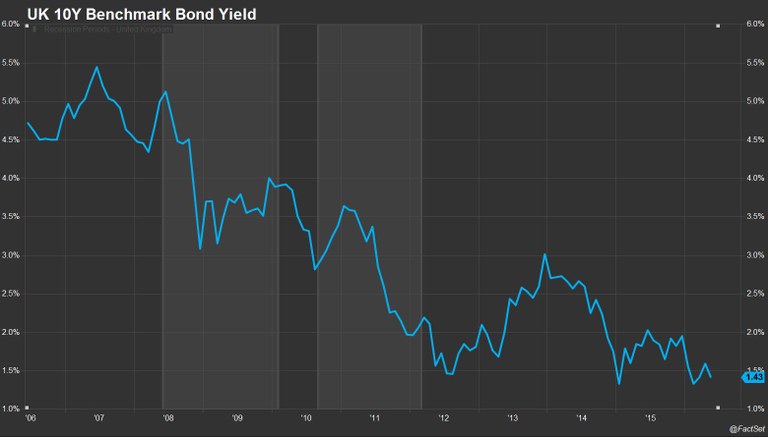Via FactSet StreetAccount
Britain's surprise vote to leave the EU dominated the headlines over the weekend. The biggest takeaway from the press coverage revolved around the multiple layers of uncertainty that seem unlikely to be resolved any time soon.
Article 50
There was a good deal of discussion about Article 50 of the Lisbon Treaty, the never-used (and seen by many as flawed) provision that sets out the terms of a country's separation from the EU. Over the weekend, a joint statement by the presidents of the European Council, European Parliament, the Council of the EU, and the European Commission, urged Britain to quickly invoke Article 50 to begin the two-year negotiating process.
However, outgoing UK Prime Minister Cameron has already said he will leave the decision about triggering Article 50 up to his successor. In addition, Boris Johnson and Michael Gove, two of the more vocal proponents for Britain to leave the EU, have argued that Article 50 would not need to be invoked right away and may ultimately be delayed for years after the vote.
Other Risks to EU
Similar to the run-up to the Brexit vote, perhaps the biggest topic over the last few days has been the possibility that other countries could press to leave the EU. Worries about the longer-term stability of the EU were quickly evidenced by calls from far-right parties in other member states for their own referendums on June 24. These included France, the Netherlands, and Italy, where the euro-skeptic Five Star Movement recently secured a decisive victory in the second round of municipal elections.
This dynamic also played into the debate about the tone the EU should adopt in the exit negotiations with the UK. While some have argued that the EU should take a hard line with Britain to discourage other countries from seeing EU departure as an attractive option, there are also concerns about the economic need to preserve mutually advantageous trade and investment links.
Related: Where the S&P 500 Faces Brexit Exposure
UK Political Fallout, Brexit Vote Backlash
The Brexit vote has generated significant political uncertainty in the UK. In the Conservative Party, while Boris Johnson has been widely speculated to succeed David Cameron as prime minister, there have been reports that Cameron's allies will try to prevent him from getting the job. In the opposition camp, Labour Party leader Jeremy Corbyn has been forced to head off an internal coup, leading to the firing of shadow foreign secretary Hilary Benn, along with the resignation of six other members from the Labour cabinet.
Scotland has also received a lot of attention. Scottish First Minister Nicola Sturgeon said another independence referendum is possible. She also noted that parliament in Edinburgh would consider blocking legislation need to make Brexit legally binding. In addition, more than three million people have signed a petition for a second EU referendum.
Economic Uncertainty
There were a number of different articles highlighting the economic uncertainty surrounding Brexit. Trade and financial agreements received a lot of attention, with some concerns that the process of the UK completely untangling itself from the EU could last as long as a decade. Articles also featured warnings from companies about the headwinds for profits, investments, hiring, and M&A. Many urged the UK to move quickly to hash out the mechanics of the separation to minimize the economic fallout. Some companies have already raised the prospect of shifting production out of the UK and cutting jobs there. The financial services industry not surprisingly garnered the bulk of the scrutiny, with reports that banks are already scouting cities elsewhere in Europe to relocate some of their staff and operations.

Monetary Policy
Much of the discussion about the policy implications from Brexit revolved around a shallower policy normalization path for the Fed. Dollar strength was a widely discussed concern given the accompanying headwinds on corporate profits and commodities, as well as the debt-servicing burden for emerging market economies and the pressure on China's exchange rate regime. The Bank of International settlements (BIS) also weighed in on two separate issues this weekend. BIS head Jaime Caruana said its global cooperation to deal with the uncertainty and adjustments following Brexit. It also reiterated that global monetary policy urgently needs rebalancing, highlighting concern about a "risky trinity" of high debt/low productivity and the dampened firepower of the world's leading central banks.
Learn more about FactSet StreetAccount.
